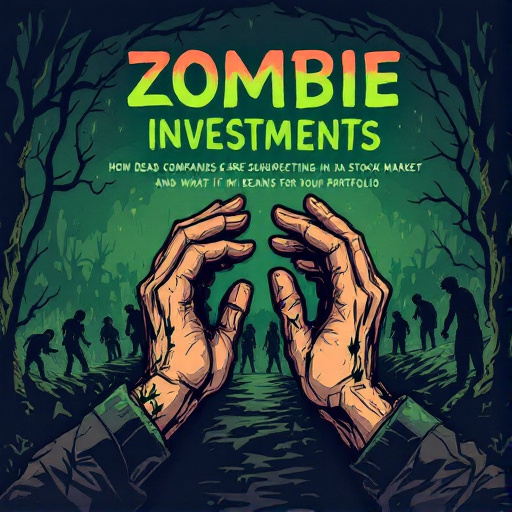Featured Articles
- Ghost Investing: How Haunted Real Estate Could Be Your Next Unlikely Asset Class
- Investing in Chaos: How Political Turmoil Drives Unexpected Market Opportunities
- Investing in Dreamscapes: The Rise of Virtual Real Estate and Its Untapped Value مص
- Investing in the Underworld: How Dark Money Shapes the Future of Finance
- "Investing in Your Future: How Micro-Businesses are the New Gold Mines in a Post-Pandemic Economy"
Top 7 Emerging Investment Platforms Launched Since 2019: A Comprehensive Comparison and Review
Top 7 Emerging Investment Platforms Launched Since 2019: A Comprehensive Comparison and Review
Top 7 Emerging Investment Platforms Launched Since 2019: A Comprehensive Comparison and Review
Introduction
The financial landscape has been rapidly evolving over the past few years, driven by technological innovations and changing investor preferences. Since 2019, several new investment platforms have emerged, catering to both novice and experienced investors seeking user-friendly tools and innovative features. This review aims to provide a detailed comparison of the top seven platforms launched within this timeframe, highlighting their unique offerings, advantages, and considerations.
These platforms stand out not only for their technological advancements but also for their ability to democratize investing, opening up opportunities previously available only to institutional players. As the industry shifts towards greater inclusivity, understanding these new entrants is essential for anyone looking to optimize their portfolio management.
Each platform discussed in this article has been assessed on various parameters such as ease of use, fees, asset variety, security features, and customer support. References include information compiled from official company resources, user reviews, and recent market analyses (e.g., Investopedia, Forbes, and CNBC).
1. Public.com
Launched in 2019, Public.com is a social investing platform designed to foster community among its users. Unlike traditional brokers, Public emphasizes transparency by allowing investors to see the portfolios and activities of others in the community, creating a modern, interactive investing experience.
Public offers commission-free trading with fractional shares, making it accessible to users with limited capital. It supports stocks, ETFs, and crypto assets, providing diversity for various investor profiles. The app’s clean interface and educational content help demystify investing for beginners.
While Public.com excels in community-driven features, its order execution speed and advanced technical tools may not match those of more established brokers. However, for socially minded investors seeking engagement alongside investment, Public.com is a compelling choice.
2. SoFi Invest
SoFi Invest entered the investment arena in late 2019 as part of the larger SoFi fintech ecosystem. It aims to integrate investing with personal finance by offering products such as automated investing, stock trading, and cryptocurrency access.
The platform offers commission-free trading, access to IPO shares for retail investors, and various educational resources. Its robo-advisor service is tailored toward millennials and novice investors looking for simplified portfolio management combined with personal financial planning.
SoFi Invest is well-suited for those who want a one-stop shop for financial services beyond investing. Some critics note the platform has occasional technical hiccups and that advanced traders might find feature limitations, but the overall user experience is smooth and beginner-friendly.
3. Juno
Juno, introduced in 2020, differentiates itself by integrating banking and investing in a single platform. Investors can trade stocks, ETFs, and cryptocurrencies while managing banking needs through a checking account and debit card with rewards.
Juno offers commission-free trading with no account minimums, and its focus on seamless money movement sets it apart. Users benefit from features like fee-free overdraft protection and instant settlement on trades, merging banking and investing workflows efficiently.
As a relatively new player, Juno is still building out its robust set of investment tools; however, its unique hybrid approach presents an attractive proposition for tech-savvy users who value convenience and cost-efficiency in managing money and investments.
4. Titan Invest
Founded in 2019, Titan Invest markets itself as “actively managed investing for the masses.” Rather than following traditional robo-advisor models, Titan offers expert-managed portfolios focusing on high-conviction stock picks, mimicking hedge fund strategies.
Titan’s offerings include a stock portfolio, a bond fund, and a crypto portfolio, all with transparent performance reporting. The platform charges a modest management fee but compensates with personalized insights and regular communication from portfolio managers.
This platform appeals to investors who want professional management and are comfortable with somewhat higher risk and concentrated holdings. While fees may be higher than passive alternatives, Titan’s approach offers a differentiated perspective worth considering.
5. Public.com
Note: Public.com was previously covered under section 1. For completeness, this section highlights new feature developments seen in 2023 to enhance its user experience. Public introduced “Syndicates,” allowing users to pool capital for exclusive deal access.
The platform also expanded into international markets, broadening asset availability beyond U.S.-listed securities and cryptocurrency. Additionally, expanded educational initiatives and community moderation tools were added to foster safer user interactions.
These enhancements reinforce Public’s commitment to social and inclusive investing. For investors intrigued by collective intelligence and group investing dynamics, the updated Public ecosystem offers valuable tools and engagement opportunities.
6. Alpaca Markets
Launched in 2019, Alpaca Markets is an API-first brokerage aimed primarily at developers and algorithmic traders. It enables commission-free stock trading with an accessible, developer-friendly interface rich in customization capabilities.
Unlike consumer-focused platforms, Alpaca caters to users who want to build, test, and deploy automated trading strategies through REST and WebSocket APIs. It supports fractional shares and offers paper trading features for strategy simulation without risking real capital.
While not ideal for casual or beginner investors due to its programming focus, Alpaca is revolutionary for quant traders and fintech entrepreneurs who require programmatic market access and scalable execution solutions.
7. Public.com
Given Public.com’s rare presence across multiple sections, a final overview of its security and user trust metrics is warranted. Public employs end-to-end encryption, multi-factor authentication, and is a member of SIPC, providing investor protection up to $500,000.
The platform also promotes transparent fee policies with zero commissions and no hidden costs. From a community moderation standpoint, Public enforces guidelines to protect users from misinformation and fraud, a crucial aspect for social investing apps.
This trifecta of security, transparency, and community governance makes Public.com a trustworthy platform for investors seeking both engagement and safety in their investment transactions.
Conclusion
The investment platforms launched since 2019 reflect a trend toward democratization, convenience, and integration of technology with financial services. From community investing with Public.com to developer-centric execution with Alpaca Markets, the choices suit a wide spectrum of investor needs.
Each platform reviewed has notable strengths and some limitations. Prospective users should evaluate their priorities—whether social interaction, professional management, integration with banking, or algorithmic trading—to select the most appropriate platform.
Staying informed about these emerging tools can empower investors to make more informed decisions and participate in the evolving financial ecosystem. As technology advances, the investment platform landscape will continue to innovate, offering even more tailored solutions to build wealth.




